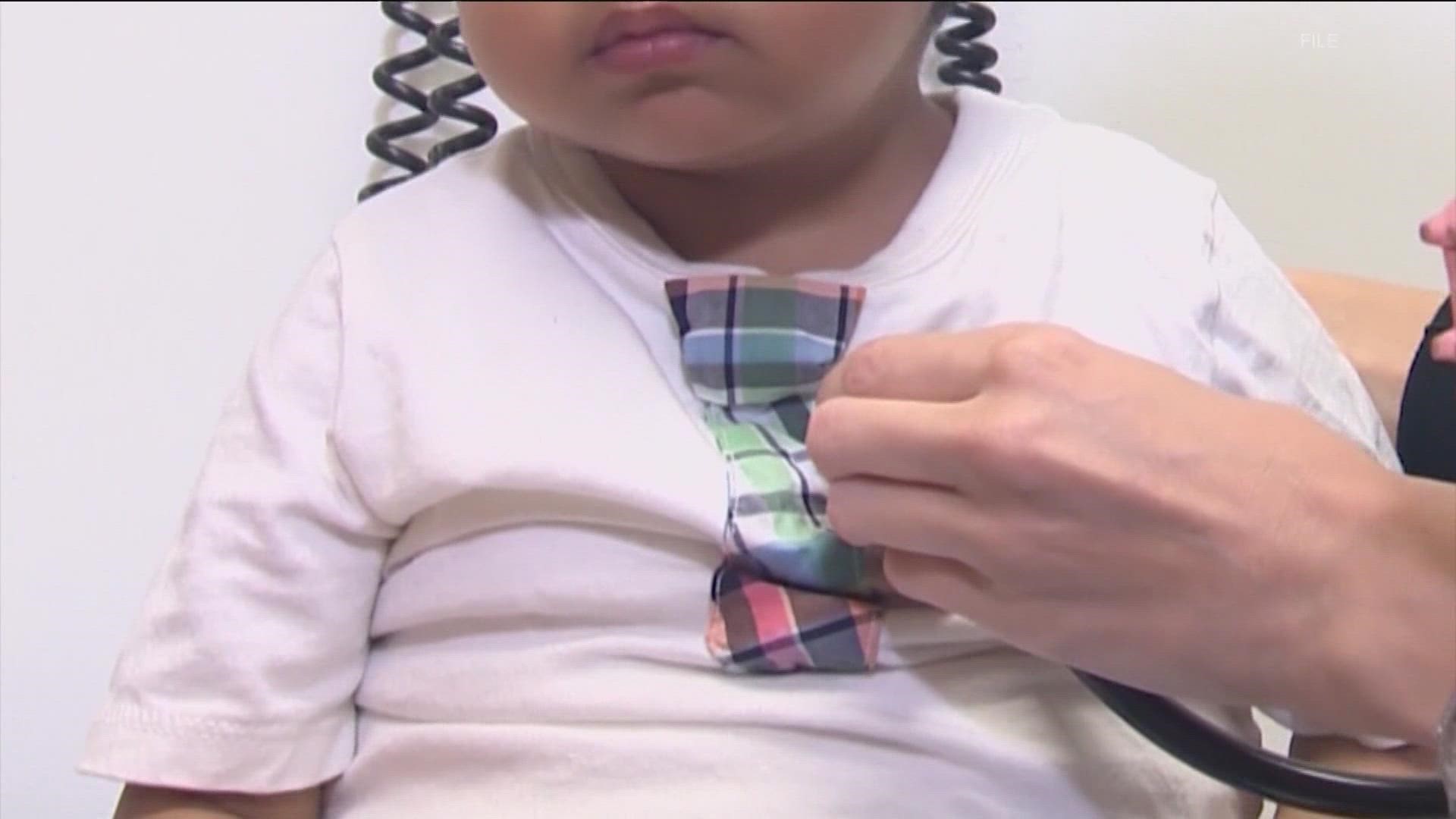TOLEDO, Ohio — The Ohio Department of Health is sounding the alarm on RSV, a contagious airborne virus that causes infection of the respiratory tract.
"Every year Children's Hospital and pediatric practices … experience winter viral illnesses including RSV and influenza," Dr. Rustin Morse, the chief medical officer of Nationwide Children’s Hospital, said.
He said those illnesses are expected in the winter, but, "it's come much earlier than usual, and the volumes are much higher than usual.”
While Morse expected a rise in RSV, flu cases are rising all over the U.S. as well.
Morse said right now, the concern is how the rise in RSV will impact hospitals, and how they handle it.
"The result of an early and dramatic spike in RSV, and now an overlapping rise in influenza, is high demands on our hospitals. Right now, most especially, on our children's hospitals," ODH Director Bruce Vanderhoff said.
To avoid catching and spreading RSV, Vanderhoff recommended using hand sanitizers, coughing or sneezing into a tissue and wearing a mask.
RSV also poses more of a risk to infants six months old and younger.
"We tell our families the biggest single thing right now is handwashing and avoiding certain areas that are considered to be high risk," Dr. R.W Mills, a pediatric specialist at the Nationwide Children’s Hospital of Toledo, said.
Mills said saline mist sprays and age-appropriate Tylenol are effective treatments. And, if there are signs of delayed or abnormal breathing, the child needs to be taken to a doctor immediately, he said.
"Sometimes the kids start to develop a rapid breathing and they start to tug, we call that retraction, so the ribs start to suck in and you actually see the ribs sucking in," Mills said.
He also said "seesaw breathing" is a symptom, "where the belly goes one way and the chest goes another."
To avoid catching the virus, multiple doctors and health professionals suggested following daily tasks of cleanliness, being observant of the signs of RSV and updating vaccinations.
Although there is no vaccine for RSV, avoiding other illnesses like influenza will decrease the chances of getting severe RSV symptoms.

